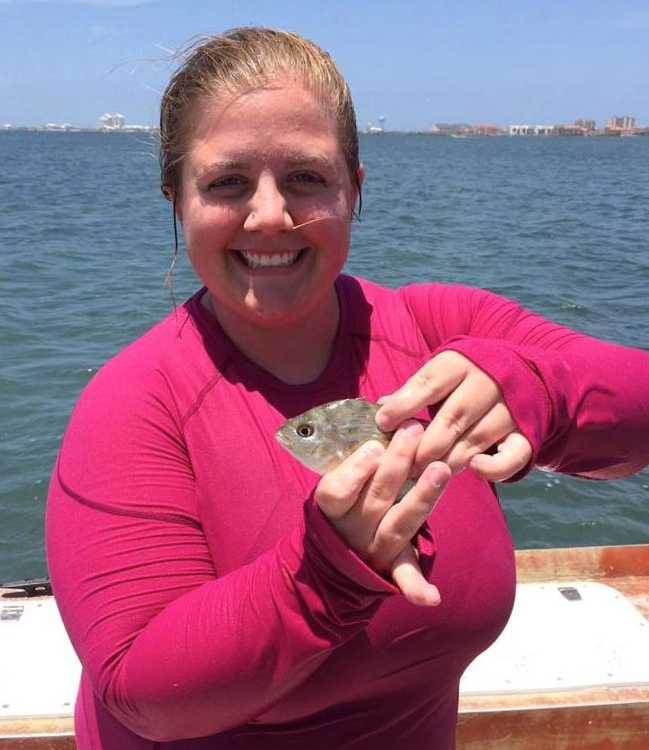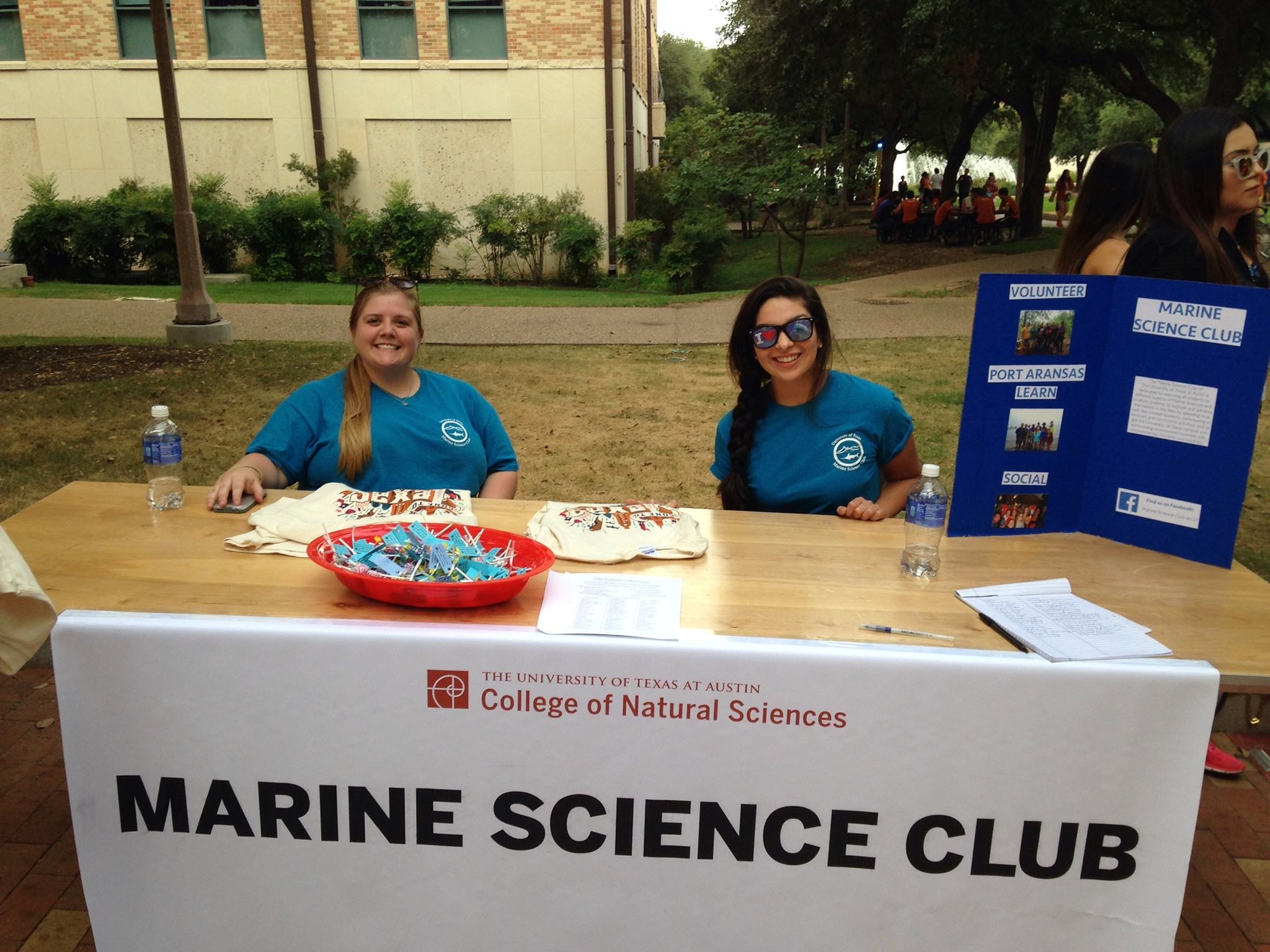 Kathryn collects a pinfish in a seine during the 2014 Estuarine Ecology class field trip to South Padre Island. Credit: Kathyrn Thompson.We sat down with Kathyrn Thompson this past summer to learn about her Semester by the Sea project. Semester by the Sea is a comprehensive spring program for UT undergraduates.
Kathryn collects a pinfish in a seine during the 2014 Estuarine Ecology class field trip to South Padre Island. Credit: Kathyrn Thompson.We sat down with Kathyrn Thompson this past summer to learn about her Semester by the Sea project. Semester by the Sea is a comprehensive spring program for UT undergraduates.
Don't wait to apply for the Spring 2016 semester now, we can only accept 20 students in residence!
Kathryn Thompson
Semester by the Sea Faculty Supervisor: Dr. Lee Fuiman
Research Area: Larval fish culture
Please tell us a little bit about your research project.
My Semester by the Sea research project was focused on refining culture methods for pigfish (Orthopristis chrysoptera), which are important bait fish in coastal Texas. Their populations are decreasing because they are a well sought after bait, and our goal is to refine the protocol necessary to grow them successfully in mariculture. Specifically my research project was to determine when and how their digestive enzymes become developed. This is much needed information in mariculture because it helps determine when the pigfish can be weaned from live food to dry food, which is cheaper and much less labor intensive.
How did you decide you wanted to pursue marine science?
From a young age I’ve had a deep love of the ocean and been intrigued by the mystery of it. I believe this fascination began with a trip to the aquarium at Moody Gardens in Galveston. When I learned of the possibility to study marine science, I took advantage of it and here I am.
In 10 years what would you like to have accomplished?
In 10 years, I would like to gain more laboratory experience, receive my master’s in science degree, and work in a fish hatchery program with larval fish. My goal is to make positive contributions to our wild fish populations since they are under such stress.
What is the most interesting or surprising thing you’ve gotten to do for your research project?
Seeing a fish go from an egg to a juvenile. There are so many developmental changes that occur from the time they are 2 mm in length to 20 mm. It is fascinating to watch that process unfold. Every day there was something new to see.
What’s been the greatest reward of doing research? The greatest challenge?
The greatest reward has been finding out something that is completely unknown. Not many people have the opportunity to go through the research process and come up with answers to the questions asked. The greatest challenge was interpreting the data. Sometimes the results didn’t make sense, so I’d have to take a step back, reassess and sometimes test the samples again. It was challenging but also rewarding to come back with a fresh mind to tackle it again and find the solution.
What inspires you?
For me, it is being here in Port Aransas, seeing the ocean every day and knowing that it’s ready for me to explore. I am also very inspired by sharing knowledge of marine science with others. I have had the great opportunity of working with 5-8th graders here at MSI during the Summer Science Program and also in Austin as an undergraduate teaching assistant for the Oceanography course. These have been some of the most rewarding positions and truly inspire me to strive to learn more and teach others.  Kathryn and fellow Marine Science Club officer Meagan Aguirre spread the word about the organization at the CNS Gone to Texas event for incoming students. Credit: Kathyrn Thompson.
Kathryn and fellow Marine Science Club officer Meagan Aguirre spread the word about the organization at the CNS Gone to Texas event for incoming students. Credit: Kathyrn Thompson.
Why did you choose UTMSI?
I’ve always been a fan of UT and knew that I was interested in marine science. My junior year of high school I visited the UTMSI facility and I was immediately sold. I’ve never regretted my decision to come to UTMSI. It’s a wonderful facility with great faculty and staff.
What has been your most memorable moment at UTMSI?
That is a tough one because there are so many wonderful memories… One of my favorites was taking the estuarine ecology course led by Drs. Ken Dunton and Chris Shank. We took a class field trip down to South Padre to explore seagrass environments. It was a unique learning experience with great classmates and instructors.
If you were a marine organisms what would you be and why?
I would be an octopus. They are so smart and their ability to camouflage is mesmerizing. It would also be handy to hide in the rocks away from a predator – having eight arms would be pretty helpful as well.
Kathryn Thompson graduated from The University of Texas in December 2014 with a bachelor of science in marine and freshwater biology. She came back to school to attend the Semester by the Sea course in the spring of 2015. Kathryn was a UT Summer Science program instructor and is currently a pursuing job opportunities in marine science. She hails from Houston, Texas and plans to pursue a master degree in marine science.